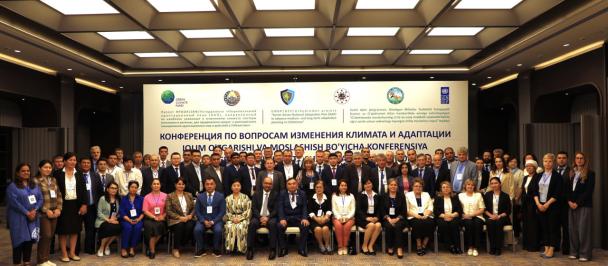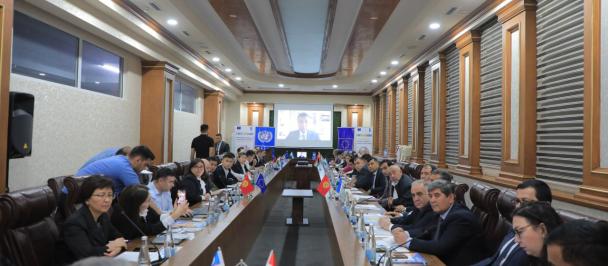EU and UNDP promote the NEXUS approach to ensure climate change adaptation and resilience in Uzbekistan
March 10, 2023
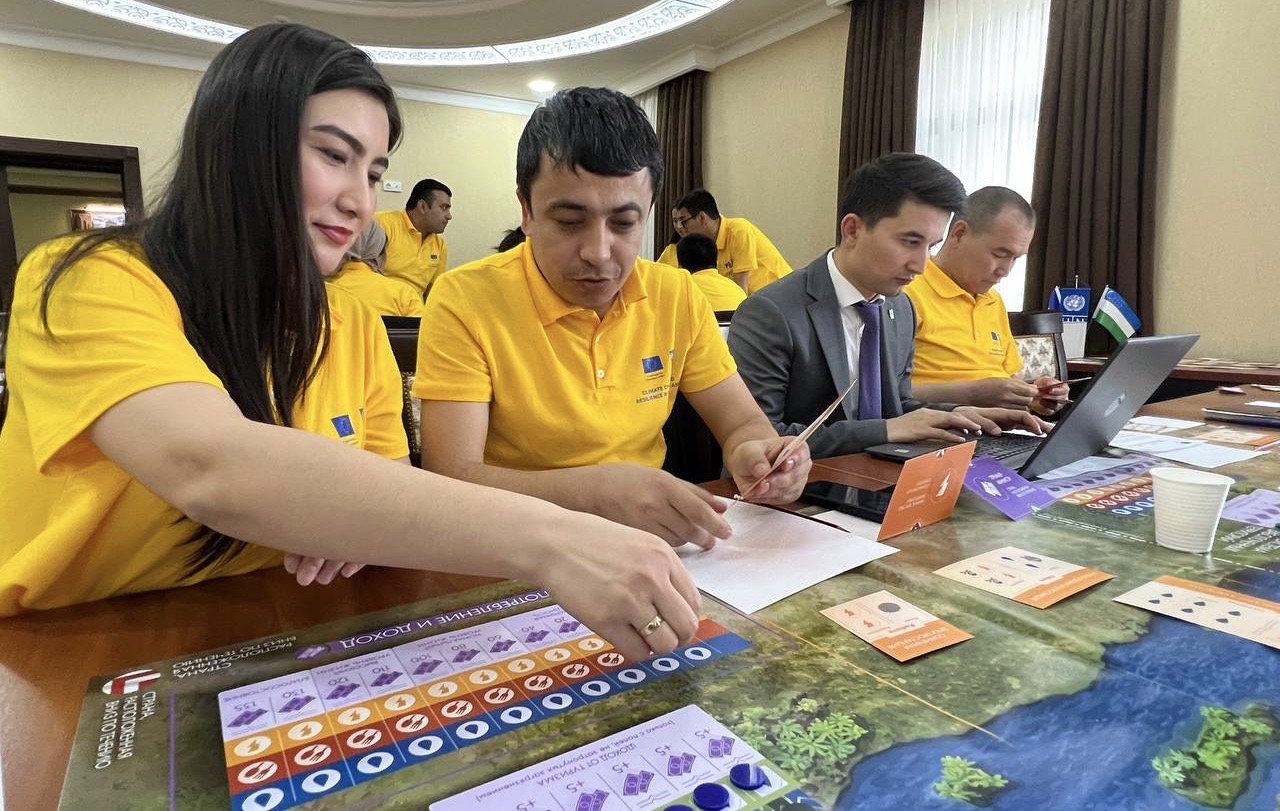
We held a two-day training aimed at using the NEXUS approach to ensure climate change resilience in Uzbekistan within the framework of our joint project “Climate change and resilience in Central Asia” funded by European Union and implemented together with the Agency of hydrometeorological service.
More than 30 specialists and decision-makers from the Hydrometeorological service agency, regional divisions of the Ministries of Water resources, Agriculture, Energy and Emergency situations from Andijan, Fergana and Namangan regions took part in the event.
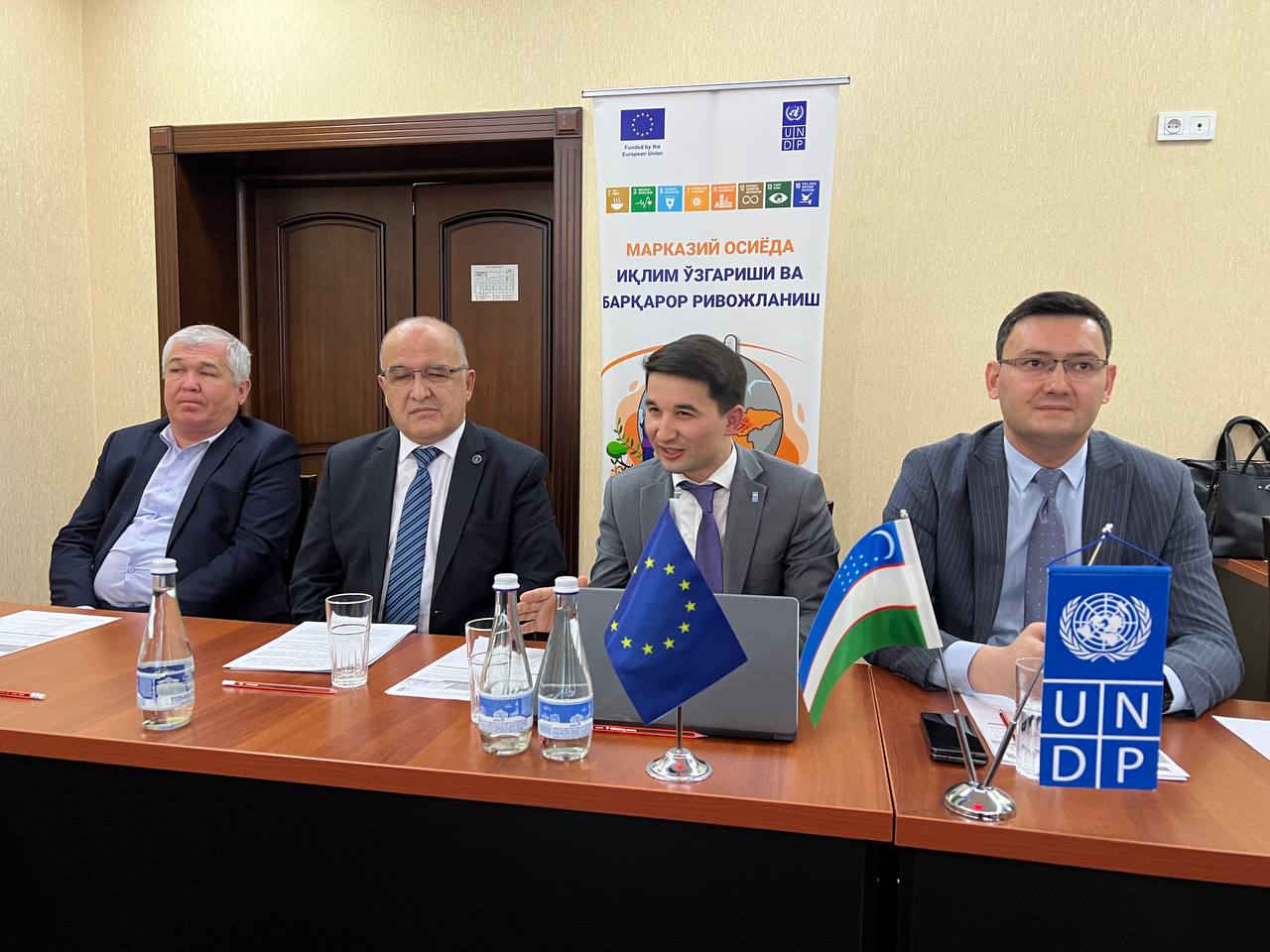
Isomiddin Akramov, project manager said during the opening ceremony of the training,
“Climate change threats and risks are largely affecting agriculture, water and land resources, human health, food security and environment. In today's training, we plan to improve knowledge and develop practical skills of national partners and key stakeholders on application of the NEXUS approach”.
The NEXUS approach is a fundamental system offering application of innovative methods in ensuring sustainable development of water-energy-food-environmental sectors. Its main advantage to promote mutually beneficial decisions based on cross-sectoral cooperation against climate change risks and threats in water-energy-food-environment policies.
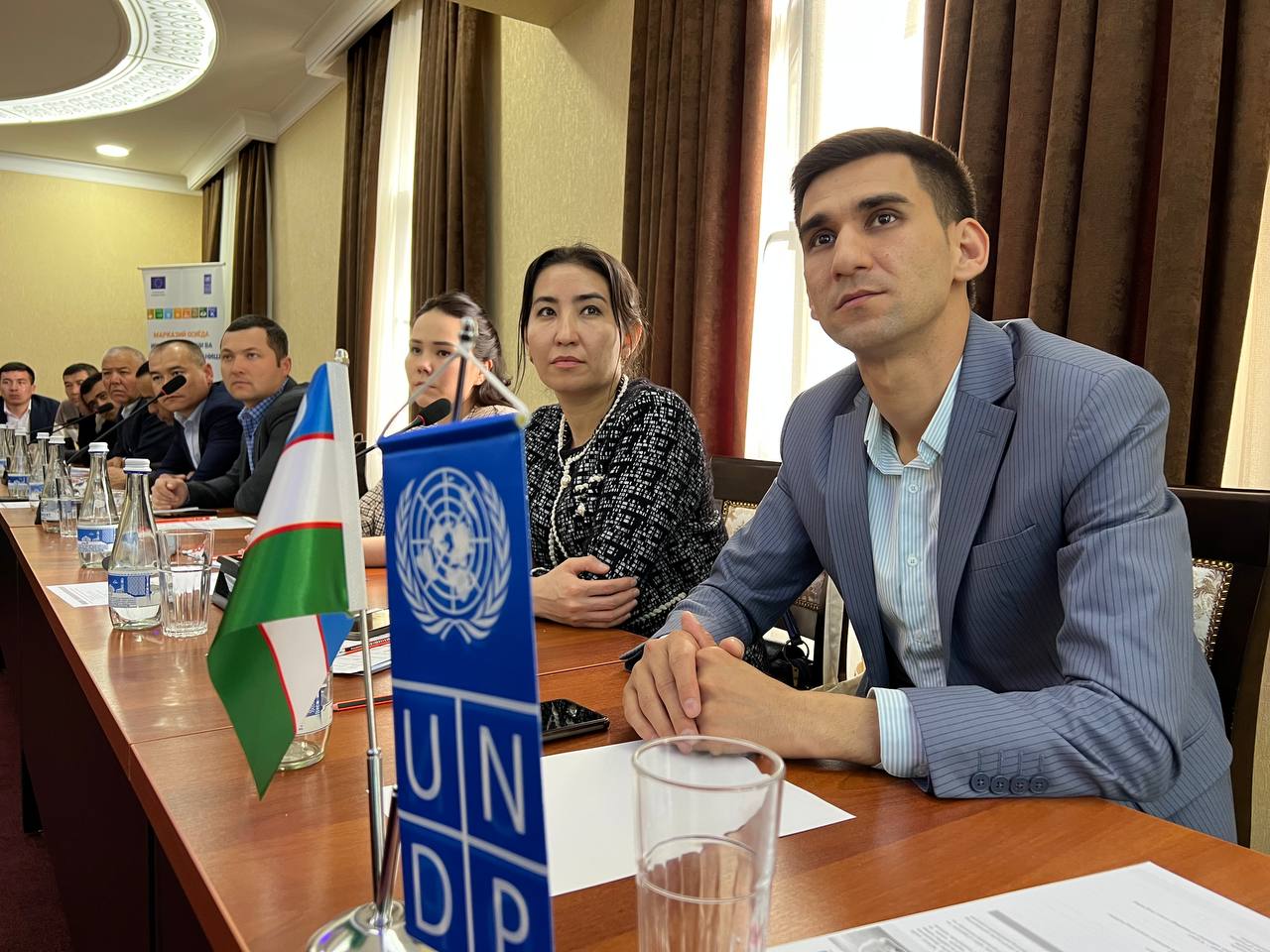
Firuz Safarov, Deputy director of the Agency of hydrometeorological service of Uzbekistan, expressed his opinion about the benefits of the NEXUS approach:
“In the last 10 years, the mountainous and hilly areas of our republic have experienced 657 mudflows and floods (in 2022 - more than 70) are observed. The analysis shows that there are 29 main flood basins in 12% of country territory, and these areas are specifically located in Namangan, Fergana, Surkhandarya, Kashkadarya and Samarkand regions and Tashkent city. The application of the NEXUS approach will help to prevent climate-related natural disasters and their consequences” he said.
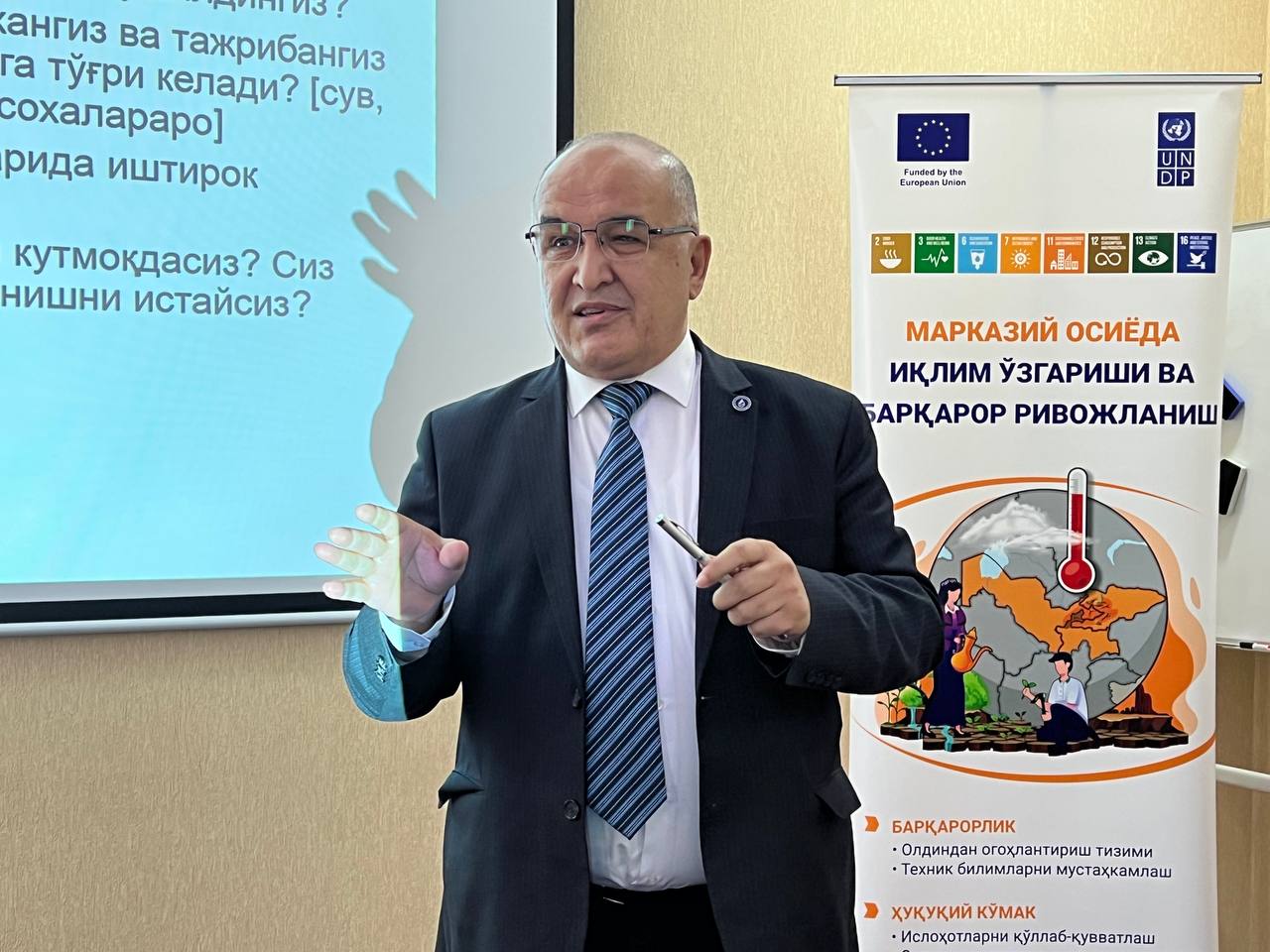
Professor Abdulhakim Salakhiddinov noted that
“According to world scientists', global energy demand will growth by nearly 50% and water consumption up to 85% by 2035 necessitating 60% more food by 2050. I hope that the NEXUS approach, promoted by the UNDP project, serves as preventive tool for above issues”.
The participants of the two-day training gained knowledge on basic principles, key objectives and advantages of NEXUS as well as presented the best international experience in applying this approach.
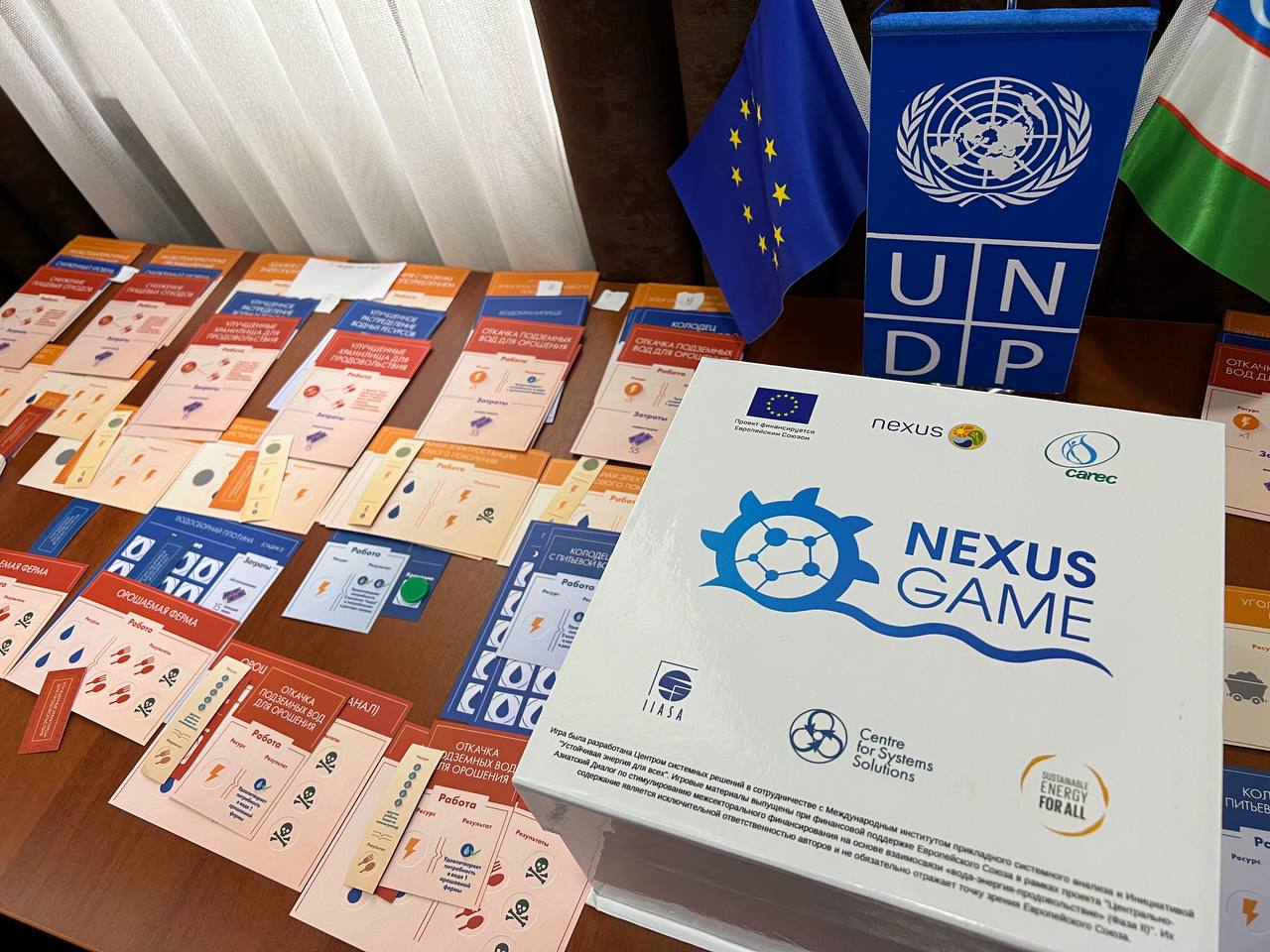
Practical part of the training was devoted to the interactive NEXUS game. The main goal of this game is to ensure sustainable development of society in harmony with nature through sustainable and efficient use of natural resources. The training on NEXUS approach provides players an understanding of how to manage natural resources for producing affordable energy and food, meeting the needs of the population while maintaining environmental balance.

 Locations
Locations

